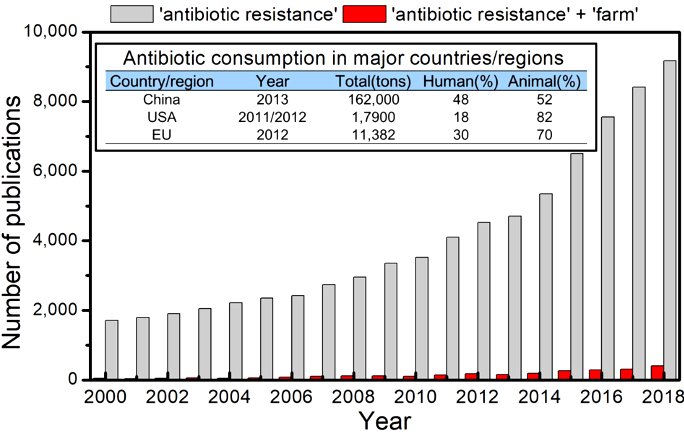Meat, enjoyed by millions worldwide, is now under intense scrutiny over its health implications. As the world grapples with its long-term implications of meat consumption, an investigation to identify which ones pose the highest health risks has gained momentum. I personally can vouch for how plant-based diets have profoundly improved both physical health and overall wellness; and am therefore committed to sharing my knowledge on all types of meat consumption risks associated with eating them.
Processed meat poses serious threats. According to the World Health Organization, its consumption has been classified as a Group 1 carcinogen with potentially grave implications on human health. A high sodium diet coupled with harmful saturated fat and cholesterol content raises concerns among meat aficionados as does antibiotic overuse leading to antibiotic resistance in livestock - all adding further layer of concern about this food choice.
Armed with knowledge about what constitutes unhealthy meat consumption, we can make more informed choices when it comes to our dietary habits. By exploring the labyrinthine aspects of risk aversion in meat consumption, we can take concrete steps towards creating a healthier and more sustainable lifestyle. Let's dive deeper together to uncover all aspects of meat consumption and risk comprehension!
I. What Makes Processed Meat So Unhealthy?
Processed meat has long been an integral part of Western cuisine, from hot dogs and bacon to deli meats that have become part of millions of daily diets for decades. Yet despite cultural acceptance, recent studies have exposed its potentially detrimental side. Studies have also indicated that processed meats may be among the most unhealthy options to consume due to numerous reasons.
High Sodium Content
One of the primary concerns associated with processed meats is their high sodium content. While sodium is essential to human health in small doses, when consumed in excess it can lead to health complications that include high blood pressure, heart disease and stroke. According to the American Heart Association guidelines a maximum daily sodium intake of 2,300 milligrams; yet just one serving of processed meat could contain over 600 milligrams of sodium!
Preservatives and Artificial Additives
Preservatives and artificial additives further compound the risk associated with processed meat consumption, creating additional health issues. While artificial additives enhance taste and prolong shelf life for these products, they may have adverse health repercussions. Preservatives like nitrites and nitrates have been linked to an increased risk of cancer (notably colorectal). Furthermore, many processed meat products contain artificial colors, flavors, and sweeteners which have been linked with obesity, type 2 diabetes, heart disease.
Cancer Risk
World Health Organization classifies processed meat as a Group 1 carcinogen, meaning that it poses an increased risk of colorectal cancer when eaten regularly. Consuming just 50 grams daily - about two slices of bacon - raises risk by 18%.
Saturated Fats and Cholesterol
As part of its many dangerous effects on human health, processed meat contains high levels of saturated fats and cholesterol that could contribute to obesity and heart disease. Diets high in these saturated fats and cholesterol (such as those present in fatty cuts of meat or processed meat ) may raise blood cholesterol levels leading to heart disease, stroke and type 2 diabetes risks.
Studies conducted recently demonstrate the dangers associated with processed meat consumption for its consumers, notably its high sodium content, the presence of preservatives and artificial additives, high levels of fat and cholesterol, as well as links to cancer are key reasons to avoid it. Although eliminating all processed meat from one's diet altogether may prove challenging, limiting intake should remain a top priority when trying to improve overall health and well-being.
Find out at Harvard School of Public Health.II. The Health Risks of Consuming High Sodium Diets
High sodium intake has long been an issue in Western diets, alongside processed meat consumption. Though we need sodium for proper functioning of our bodies, an excess amount can pose serious health risks. These may include increased blood pressure levels which increases risks of heart disease, heart attack and stroke as well as water retention which places strain on blood vessels and heart as well as increasing kidney disease risks. A diet high in sodium may even increase the likelihood of kidney failure as a side effect of long-term consumption.
Unfortunately, Western diets typically contain excessive levels of sodium due to our increasing use of processed food products like processed meats, fast food items, and restaurant meals containing sodium-laden sauces and seasonings that add flavor and extend shelf life. Although the American Heart Association suggests no more than 2,300 milligrams daily as recommended intake, many Americans far exceed this recommendation: according to Centers for Disease Control and Prevention research the average American adult consumes roughly 3,400 milligrams each day which far surpasses what would be acceptable per daily limit set forth by AHA guidelines.
Reducing sodium consumption may seem an insurmountable task, but certain steps can help individuals curb their sodium consumption. Individuals can swap out processed foods for freshly-prepared home-cooked dishes using fresh ingredients instead, scrutinize labels to identify products high in sodium content and consume plenty of fruits and vegetables with water throughout the day - all strategies designed to mitigate potential negative side effects associated with diets high in sodium content.
As previously discussed, high sodium diets can have detrimental health outcomes, necessitating measures to lower their consumption. While changing to healthier habits may be challenging at first glance, doing so could drastically lower risks of heart disease, stroke, kidney disease and other maladies. A diet rich in fresh fruit and vegetables with lean proteins and whole grains as a foundation can provide essential nutrition while simultaneously decreasing risk factors associated with disease complications. As an additional safeguard measure against potential harm taking steps such as cutting back on processed edibles consumption and reading food labels will help maintain overall well being.
III. The Role of Saturated Fat and Cholesterol in Meat Consumption
Studies have established a connection between saturated fat and cholesterol consumption and its detrimental impact on an individual's well-being - such as heart disease, stroke and type 2 diabetes - and meat consumption; specifically fatty cuts of meat and processed meat products which contain both these components should be carefully considered when creating a diet plan.
Saturated fat is a nutritional adversary commonly found in animal products like meat, butter, cheese and cream. Excess consumption has been linked with rising cholesterol levels - leading to heart disease and stroke risk - not forgetting that certain cuts of meat like beef and pork contain higher concentrations of saturated fat than others - therefore leading to health benefits when consumed responsibly. Leaner cuts of meat such as chicken or fish contain much lower quantities of saturated fat thus yielding greater health rewards.
Cholesterol, a fat-like substance found in animal products such as meat, eggs and dairy that is essential for hormone and cell membrane production, should only be consumed in moderation; excess consumption could increase cholesterol levels in your body and lead to heart disease - thus the key element is moderation when eating meat products.
At this juncture, it is crucial to recognize the availability of alternatives that offer similar nutritive value as meat but with lower saturated fat and cholesterol content. Plant-based diets tend to contain more essential vitamins and minerals while typically having less cholesterol-containing dishes than meat-containing dishes do. Incorporating legumes, nuts and whole grains as protein sources offers another fantastic source of hearty nutrition than meat protein can deliver.
As evidence suggests, diets high in saturated fat and cholesterol have serious repercussions for our health - such as heart disease, stroke and type 2 diabetes. Therefore, lean cuts of meat and limiting processed meat consumption should be prioritized for overall wellbeing. Furthermore, including plant-based proteins can add great nutritional value while simultaneously offering significant health advantages.
Learn more at NCBI.govIV. Antibiotic Resistance in Livestock and Its Health Consequences
Antibiotics have revolutionized medicine since their invention in the early twentieth century, saving countless lives through treatment. Yet their misuse in livestock breeding can have devastating repercussions that have had detrimental effects on human wellbeing.
Antibiotics are frequently administered in livestock farming for purposes of disease prevention and growth promotion, leading to widespread antibiotic resistance among bacteria that threaten human health. Furthermore, antibiotic-resistant bacteria could spread via food contaminated with resistant strains from animals or even contact between people and animals that contain such strains - decreasing their effectiveness at treating disease.
Antibiotic-resistant infections can have devastating repercussions, from increased difficulty in treatment leading to long hospital stays and increased healthcare costs, all the way up to fatality. According to projections by the World Health Organization, antibiotic resistance may cause up to 10 million deaths every year by 2050 without appropriate measures being implemented to address it.
Reducing Antibiotic Overuse
Consumers can help reduce antibiotic overuse in livestock farming by opting for antibiotic-free meats and supporting environmentally friendly farming practices that prioritize ethics, sustainability, and animal welfare. When farmers implement such considerate farming methods they require fewer antibiotics for higher output while enabling healthier animals to thrive on a plant-based diet, reducing antibiotic usage in turn resulting in decreased need.
Ethical and Environmentally Friendly Farming Practices
Choosing to support ethical and environmentally friendly farming practices not only benefits animal welfare but also helps reduce the overuse of antibiotics in livestock farming. These practices prioritize sustainability and produce healthier animals without the need for excessive antibiotic use. Additionally, opting for plant-based diets for livestock can significantly reduce antibiotic usage.
Conclusion
In conclusion, livestock farming's overuse of antibiotics is a grave contributor to antibiotic resistance and can have profound health repercussions. Reducing meat consumption while opting for antibiotic-free meat products and supporting ethical, environmentally friendly farming practices are critical elements in creating a more sustainable future.
Conclusion:
After careful investigation into the health implications associated with eating various types of meats, it has become evident that processed meat is one of the primary culprits of health damage. Experts agree that consumption of processed meat contributes significantly to chronic illnesses like heart disease and cancer as well as numerous other life-threatening ailments.
As has long been noted, individuals who consume an abundance of fatty meat cuts, sodium-laden processed meat or that is from animals treated with multiple courses of antibiotics run an increased risk for health predicaments. Therefore, making an intentional switch toward plant-based proteins as their main source is one proven and unquestionable method for mitigating such effects and creating an overall framework of wellbeing.
At this critical juncture in global health care, living a healthier and sustainable dietary lifestyle has never been more vital. Opting for reduced meat products consumption is an effective way of protecting both our health and our environmental footprint at once.
At this point, it has become evident that processed meat is one of the least healthful options to consume. Although eliminating it entirely may be challenging, with effort and persistence we can gradually lower its consumption while shifting towards plant-based proteins that promise long-term health advantages. So let us all work towards resilient health and sustainable living by supporting environmentally friendly farming methods, all working towards creating a better future for ourselves and the planet alike.




